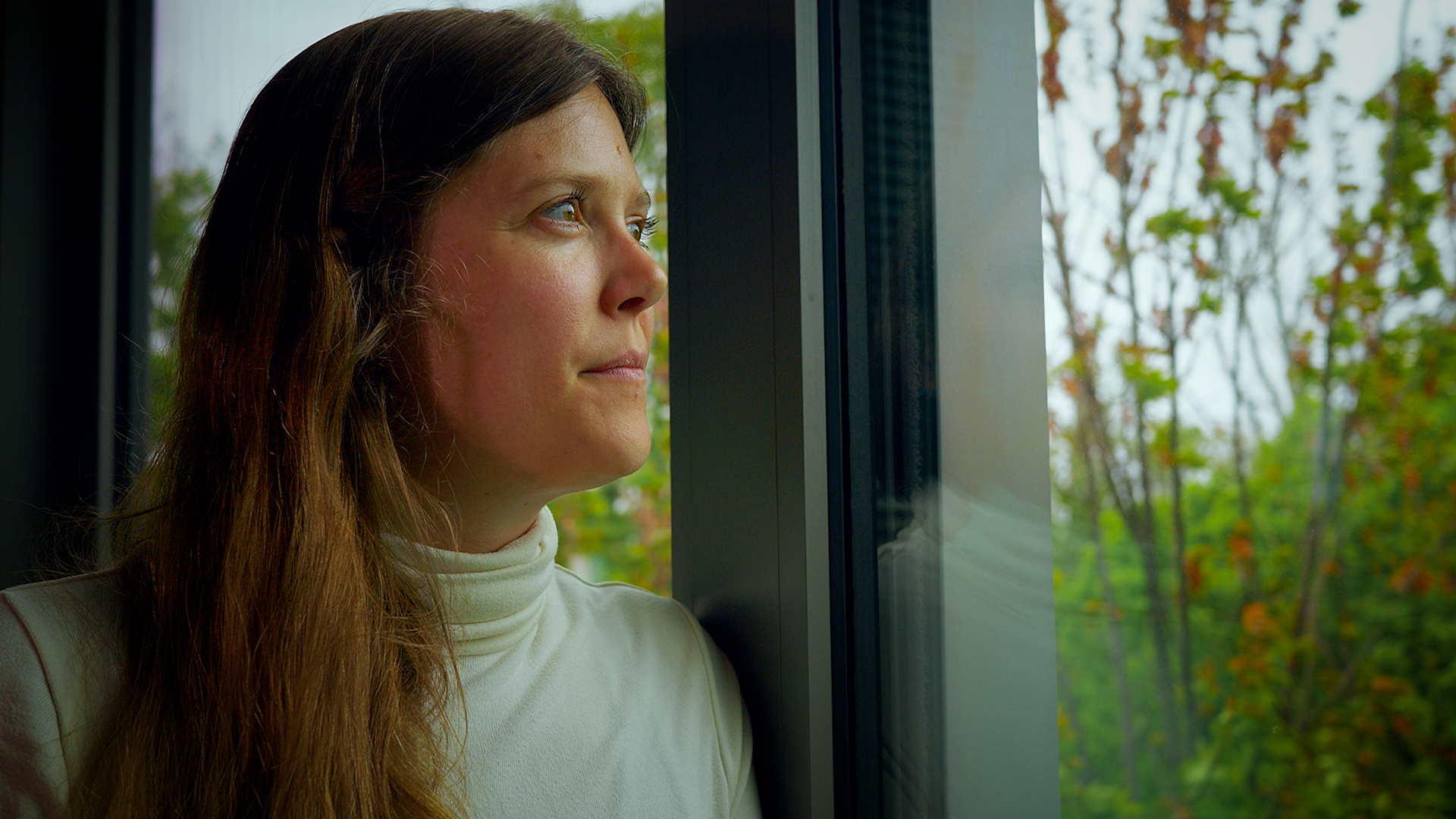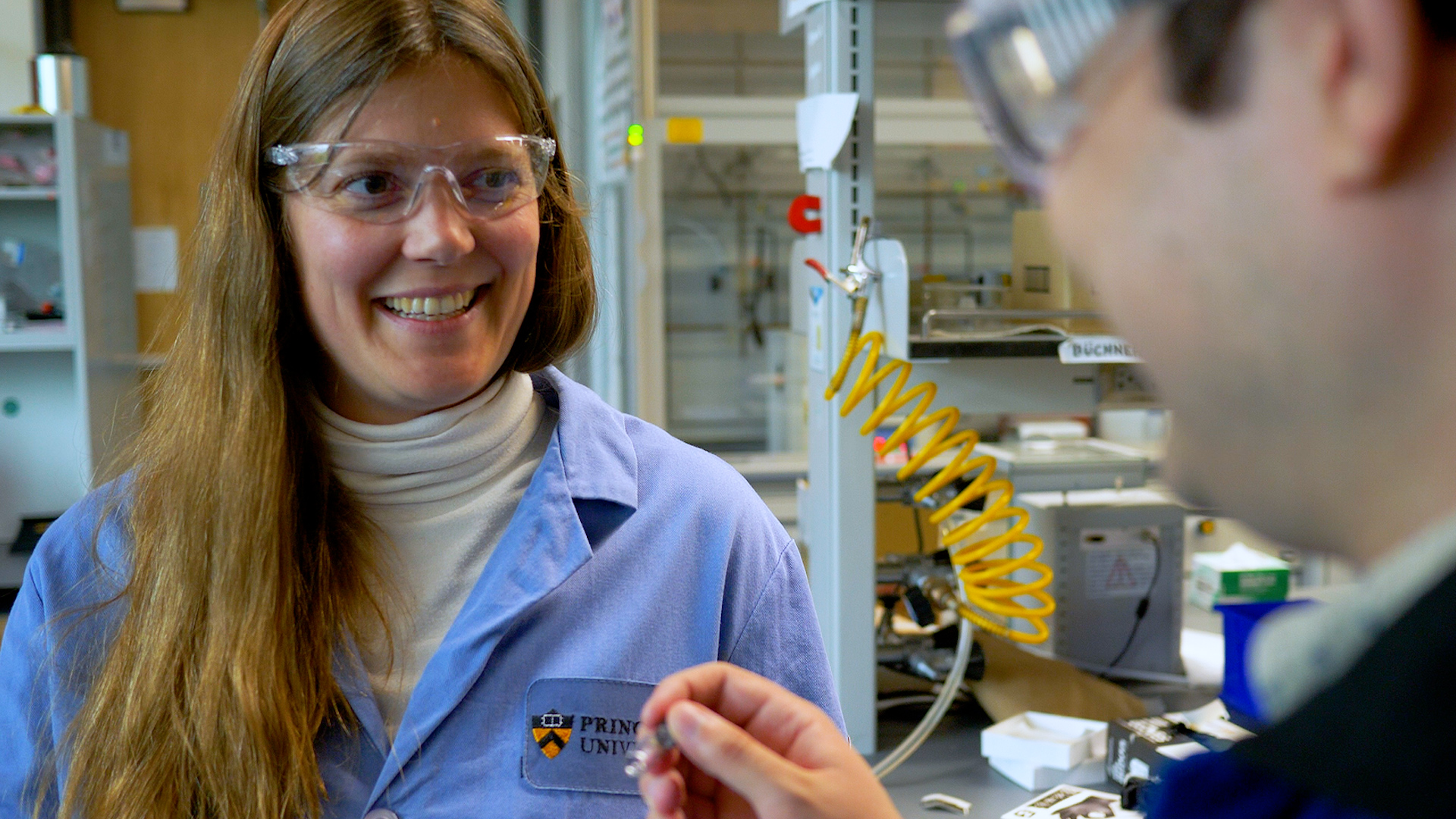
Leslie Schoop is a Professor of Chemistry at Princeton University. Her research focuses on the interface between chemistry and physics, using chemical principles to find new materials with exotic physical properties. The Moore Foundation has supported her research through the Emergent Phenomena in Quantum Systems Initiative to explore the synthesis of layered magnetic materials, correlated topological materials, and novel two-dimensional materials.
You can find out more about her work and her contact information by visiting her lab website.
In this installment of Beyond the Lab, Leslie discusses her deep-rooted love for research and some of her hopes for the future.
What made you want to become a researcher?
I always liked the creativity of certain puzzles. I enjoy creative work such as art and music, but I was more inspired by math and science problems in my life, and I realized at some point that going into academic research was a way to combine both. You can do science on a very creative level as a researcher because you’re not restricted by needing to ensure a product gets on the shelf tomorrow or anything like that. With this freedom, you can flourish and eventually arrive at breakthrough ideas.
Has anyone inspired you on your journey?
Some of that came from my grandfather, who was a medical doctor that also did a lot of research. He described to me how he discovered a few things, and I was blown away. As an undergrad, I read papers by Nobel Prize-winning chemist Roald Hoffman and some of the specific work really inspired me, and I still feed off some of that today to catalyze my research.

How would you describe the problems that you and your colleagues are trying to solve?
We are researching quantum materials. Without them, we wouldn’t have technology like computers or cellphones. The field is dominated by researchers with a background in physics or materials science and engineering. I’m a chemist, and I think about problems like a chemist, like the way an organic chemist thinks about reaction mechanisms. I think about how similar chemistry plays out in a material and how I can apply this type of thinking to learn about its properties.
What are some of the challenges you’ve faced in your career? And what do you find particularly fulfilling?
It’s difficult to get away from a lab setting to something more usable. My goal is to find more and better materials, and hopefully design materials of the future so we can move these discoveries outside of the lab.
Fulfilling – the students and the postdocs. I work with wonderful people and seeing how smart they are and what we can do together is really inspiring. And then purely scientifically, the science that I really, really love is when we reduce a seemingly complex system to something simple, because that's the power of chemistry. We've done it a few times and written a few papers where afterwards people have said, “I use this paper to teach my course, because it's so much clearer for the students.”
The idea of boiling something down and seeing that students will now learn about it in classes – that’s very satisfying.
What advice do you give to younger or aspiring researchers?
I think you know relatively early if you want to do research – you really have to love it. Looking back, I didn’t know I was going to end up in academia, but when I think about it, I had a consistent love for scientific discovery. It’s so strong that I don’t only see it as my job. When I was an undergrad researcher doing my first research, I voluntarily went to the lab on the weekends just because I wanted to, and it was the most fun way for me to spend my time. If you feel you feel this love early, you know scientific research is right for you.
Looking to the future, where do you see yourself in five years, personally or professionally?
That’s a funny question because if you asked me five years ago, I could not have projected this – I’ve been way more successful than I could have dreamed. I just hope that I’ll continue to have research success and have fun doing it. I’m in a pretty steady place right now.
One thing that is new and that I’m excited about is my first post docs are starting their own academic positions. I'm really curious about watching them and seeing how successful the people that I mentored are. My first graduate students are out in the world!

Personally, in the last five years I had my first child, so maybe a second one? Who knows.
Is there anything else you’d like people to know about you?
I want them to know that I'm a very happy academic. I feel like there's so much talk out there about how awful academia can be. But I think I'm an example of somebody who's extremely happy with it, as a woman with a young kid. I have a job that’s flexible, and I love doing it. It’s perfect for having a family and being well-rounded.

Message sent
Thank you for sharing.